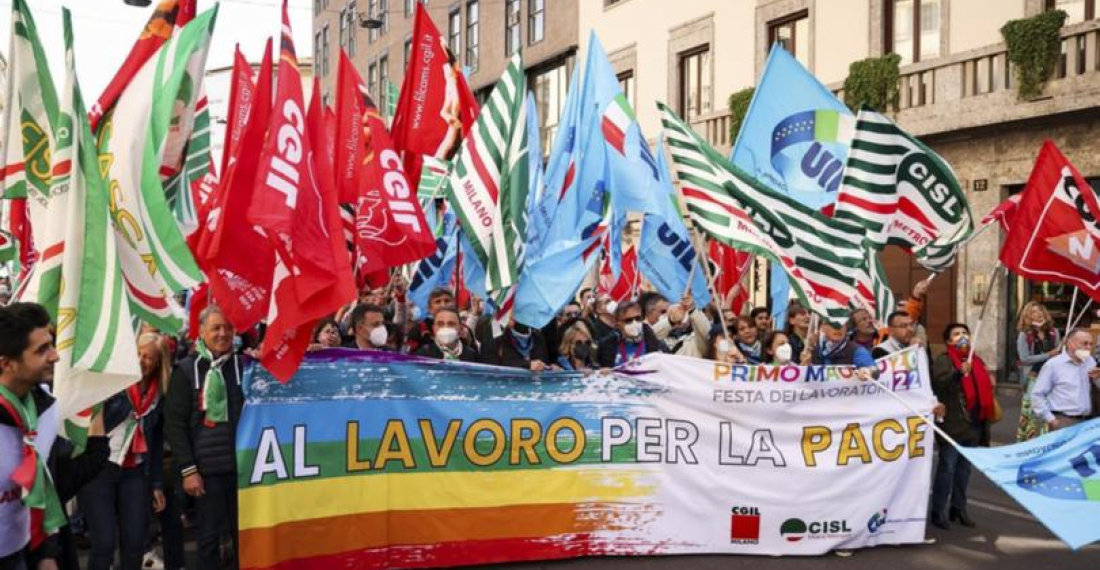Across the world hundreds of thousands of people took to the streets in towns and cities to mark International Workers Day - often referred to simply as May Day.
Citizens and trade unions in cities around Europe are taking to the streets for May Day marches, and to put out protest messages to their governments.
The marches on Sunday where notable in France where the holiday to honour workers was being used as a rallying cry against newly re-elected President Emmanuel Macron.
In Italy, after a two-year pandemic lull, an outdoor mega-concert was set for Rome with rallies and protests in cities across the country. Besides work, peace was an underlying theme with calls for an end to Russia's war in Ukraine.
Italy's three main labour unions were focusing their main rally in the hilltop town of Assisi, a frequent destination for peace protests. This year's slogan is "Working for peace".
"It's a May Day of social and civil commitment for peace and labour," said the head of Italy's CISL union, Daniela Fumarola.
Protests were planned far and wide in Europe, including in Slovakia and the Czech Republic, where students and others planned to rally in support of Ukraine as Communists, anarchists and anti-European Union groups held their own gatherings.
In France, the May Day rallies are meant to show Macron the opposition he could face in his second five-year term and to power up against his centrists before June legislative elections.
Opposition parties, notably the far left and far right, are looking to break his government's majority.
May Day is also a big day for left wing parties and organisations in Turkey, where large Mayday rallies also took place this year.
Turkish riot police detained dozens of protesters trying to reach Istanbul's main Taksim Square for May Day demonstrations against economic hardship caused by raging inflation.
The Istanbul governor's office had allowed May Day celebrations to be held in another district and deemed gatherings in all other locations as unauthorised and illegal. A statement from the Istanbul governor's office on Sunday said that 164 protesters had been detained across the city for "attempting to hold illegal demonstrations".
The holiday has it roots in demands for worker's rights.
May 1 was chosen as International Workers Day in 1889 Congress of the Socialist International which met in Paris and established the Second International as a successor to the earlier International Workingmen's Association. They adopted a resolution for a "great international demonstration" in support of working-class demands for the eight-hour day. The date had been chosen by the American Federation of Labor to continue an earlier campaign for the eight-hour day in the United States, which had been the cause of a general strike beginning on 1 May 1886, and culminated in the Haymarket affair, which occurred in Chicago four days later. May Day subsequently became an annual event.
The 1904 Sixth Conference of the Second International, called on "all Social Democratic Party organisations and trade unions of all countries to demonstrate energetically on the First of May for the legal establishment of the eight-hour day, for the class demands of the proletariat, and for universal peace".
source: commonspace.eu
photo: A May Day rally in the Italian city of Milan







